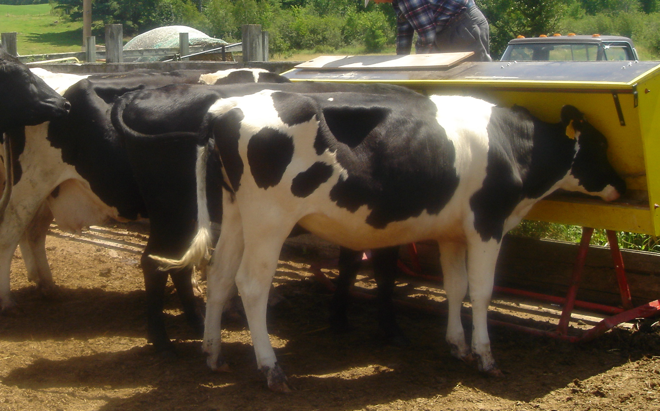
Wednesday, April 27, 2016 - Reinaldo Cooke, PhD, Oregon State University, recently reported on a study investigating how trace mineral supplementation in  gestating cows affected calf performance and the relative efficiency of chelated versus inorganic sources of minerals.
gestating cows affected calf performance and the relative efficiency of chelated versus inorganic sources of minerals.
Cooke notes that key elements such as cobalt, copper, manganese and zinc are known to be essential for fetal development, and the dam is the only source of those nutrients for the developing fetus. He also pointed out that organic (chelated) minerals can be more bioavailable than inorganic, or sulfate formulations, of the same minerals.
The trial included 84 pregnant cows at the end of their second trimester of pregnancy, sorted into three treatment groups: a control group receiving no trace mineral supplement, a group receiving inorganic supplements of cobalt, copper, manganese and zinc, and a group receiving organic formulations of the same minerals. The control group was not considered mineral deficient. Prior to calving, the researchers collected liver biopsies from cows and at calving collected liver samples from calves and samples from placentas.
The inorganic and organic sources improved trace-mineral status of cows versus controls, but the organic forms seemed to transfer better to the calves. In the placenta samples, cows receiving the organic sources were somewhat higher for all four minerals.
Weaning weights averaged 519 pounds for calves from cows receiving the organic minerals versus 491 pounds for those from the group receiving the inorganic minerals. The calves from the organic-mineral group had a $70 per head advantage over controls at weaning while the inorganic-mineral group had a $32 per head advantage. The greater weaning weights for the calves from organic-mineral-supplemented cows were maintained through the finishing period. Researchers also noted that the organic formulation of mineral supplements in cows decreased BRD in their calves during the critical receiving period.
Maybe, Cooke says, cow-calf producers should provide more trace minerals to cows than currently believed. He adds that supplementation during the first and second trimester probably would improve calf performance further, but the trial focused on the third trimester because of the difficulty of controlling mineral intake in the range cows.
COMMENT: It is interesting to me that the researcher suggests we might need to provide more minerals that currently believed. To me this indicates that the revered NRC requirements are outdated and do not take into consideration how soil depletion has affected mineral balance and animal health.
For ultimate health, we need to provide free-choice minerals to all animals at all times. Check out Advanced Biological Concepts’ mineral programs at www.abcplus.biz.
Learn more here